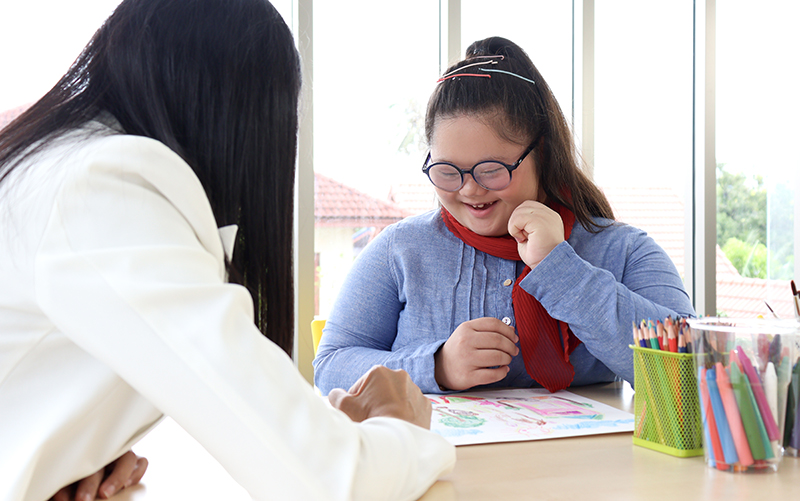Search
Showing results for "autism"
Research
Systematic Review and Meta-analysis: Early Irritability as a Transdiagnostic Neurodevelopmental Vulnerability to Later Mental Health ProblemsIrritability is a transdiagnostic indicator of child and adolescent internalizing and externalizing problems that is measurable from early life. The objective of this systematic review was to determine the strength of the association between irritability measured from 0 to 5 years and later internalizing and externalizing problems, to identify mediators and moderators of these relationships, and to explore whether the strength of the association varied according to irritability operationalization.
Research
Online self-compassion training to improve the wellbeing of youth with chronic medical conditions: Protocol for a randomised control trialThe Self-Compassion Online program could provide a scalable solution for improving psychological outcomes and quality of life among youth with chronic illness
Research
Resting Energy Expenditure and Metabolic Features in Children With Septo-Optic DysplasiaSepto-optic dysplasia (SOD) is a major cause of congenital hypopituitarism and is known to be associated with overweight and obesity in up to 44% of children. Given the role of the hypothalamus in hormonal regulation, we sought to assess the association of resting energy expenditure (REE), appetite and physical activity with SOD.
Research
It takes a village: Influencing policy and practice to prevent alcohol use in pregnancy and promote better outcomes for individuals living with Fetal Alcohol Spectrum DisorderFetal Alcohol Spectrum Disorder is a neurodevelopmental disorder caused by exposure to alcohol in utero. It has pervasive, lifelong impacts and is recognised as a major public health concern in many countries where alcohol is used. The FASD Research Australia Centre of Research Excellence was funded by the National Health and Medical Research Council to generate and translate evidence to address prevention, diagnosis, and management of FASD in Australia.
Research
‘There’s good and bad’: parent perspectives on the influence of mobile touch screen device use on prenatal attachmentThe potential for human-computer interaction to have a substantial impact on adults is well documented. However, its potential importance prior to birth has rarely been reported. Parental use of smartphones and tablet computers could influence the relationship between parent and baby during pregnancy (prenatal attachment) and thus child development.
Research
Aboriginal and non-Aboriginal children in Western Australia carry different serotypes of pneumococci with different antimicrobial susceptibility profilesDifferences in pneumococcal serotypes, genotypes, and antimicrobial susceptibility between Aboriginal and non-Aboriginal children living in the same area
Research
Lifestyle and demographic correlates of poor mental health in early adolescenceTo determine the constellation of lifestyle and demographic factors that are associated with poor mental health in an adolescent population.

News & Events
Worrying trends reinforce need for kids health researchChild health experts are concerned by a significant increase in the number of Australian children requiring learning support at school.

News & Events
Participation key to quality of life for kids with disabilityThe Kids Research Institute Australia researchers have called for a greater focus on creating opportunities for children with disability to participate in the community, after finding a clear link between participation and better quality of life.
News & Events
Critical mass in rare diseases - an innovative internet approachThe internet is emerging as a valuable tool for scientists to gather data for critical research into rare diseases.
